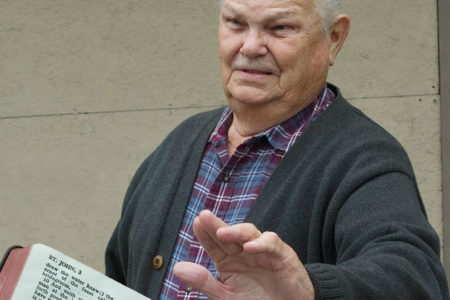Europe’s Siren Song
Western Europe’s Economic Community enthusiastically endorsed the Palestine Liberation Organization as the representative of the Palestinian people, condemned Israel for “violation of human rights,” and lectured about understanding “that peace doesn’t come from armed violence.” But that was in July of 1990, barely one month before Saddam Hussein gave the EC and the world a lesson in what violating human rights is really all about.
By February 1991, press reports were touting a “major turnabout” in the EC’s view of Israel’s role in the economically integrated Europe of 1993. No question about it, the wind shifted perceptibly during the Gulf War, and Western Europe’s siren song began drifting over the rocky shoals of the Middle East. Those who direct Israel’s ship of state immediately adjusted their course toward the enthralling strains that beckoned them to Brussels. The words were indeed stunning.
“The Brussels-based European Community Commission has informally jettisoned its policy of linking ties with Israel to a Palestinian settlement.”
“An EC meeting in Brussels last Thursday discussed the provision of $210 million in aid to compensate Israel for Gulf War costs.”
“One European diplomat said: ‘we now want to talk with Israel and see how Israeli companies can get a foothold in the new Europe. We now want to discuss things as friends, and we want normalization.’”
In July 1991, the Jewish Press Israel Bureau was trumpeting the news that “Business leaders here [in Israel] welcomed this week’s announcement that Israel has been accepted as an associate member of the European Community.”
Danny Gillerman, chairman of Israel’s Chamber of Commerce, reacted with unbridled enthusiasm: “I think Israel should be not only an associate member but a full member of the European Economic Community. We are a part of Europe. Europe is our greatest and most important trading partner.”
In concert with the July announcement came news that Israel’s cabinet had accepted the inclusion of the European Community in the peace process “and paved the way for a European representative to distribute aid in the territories.” The peace package included trade concessions to Israel when the EC unifies in 1993. The Community promised $2.4 billion for unspecified regional cooperation projects—such as regional water projects—among countries in the area.
Answers to a “What’s in it for Europe?” question could no doubt bring waves of speculation. PLO allegiance to Saddam Hussein and scenes of Palestinians standing atop roofs cheering SCUD attacks on Tel Aviv and Haifa didn’t harm Israel’s cause. And, unquestionably, Europe wants to be in the middle of the inevitable new mix in the Middle East. Then there’s all that Russian brain power flowing into Israel—scientific and technological know-how that brings a rich source of potential fuel for Western Europe’s new economic machine.
But most intriguing of all is to witness how quickly the tides are shifting, and all of them seem to run into the prophetic mainstream. With respect to Western Europe’s change of heart and direction toward Israel, one can discern the words of Scripture coming into ever-clearer focus—“And he shall confirm the covenant with many for one week … ” (Dan. 9:27).








